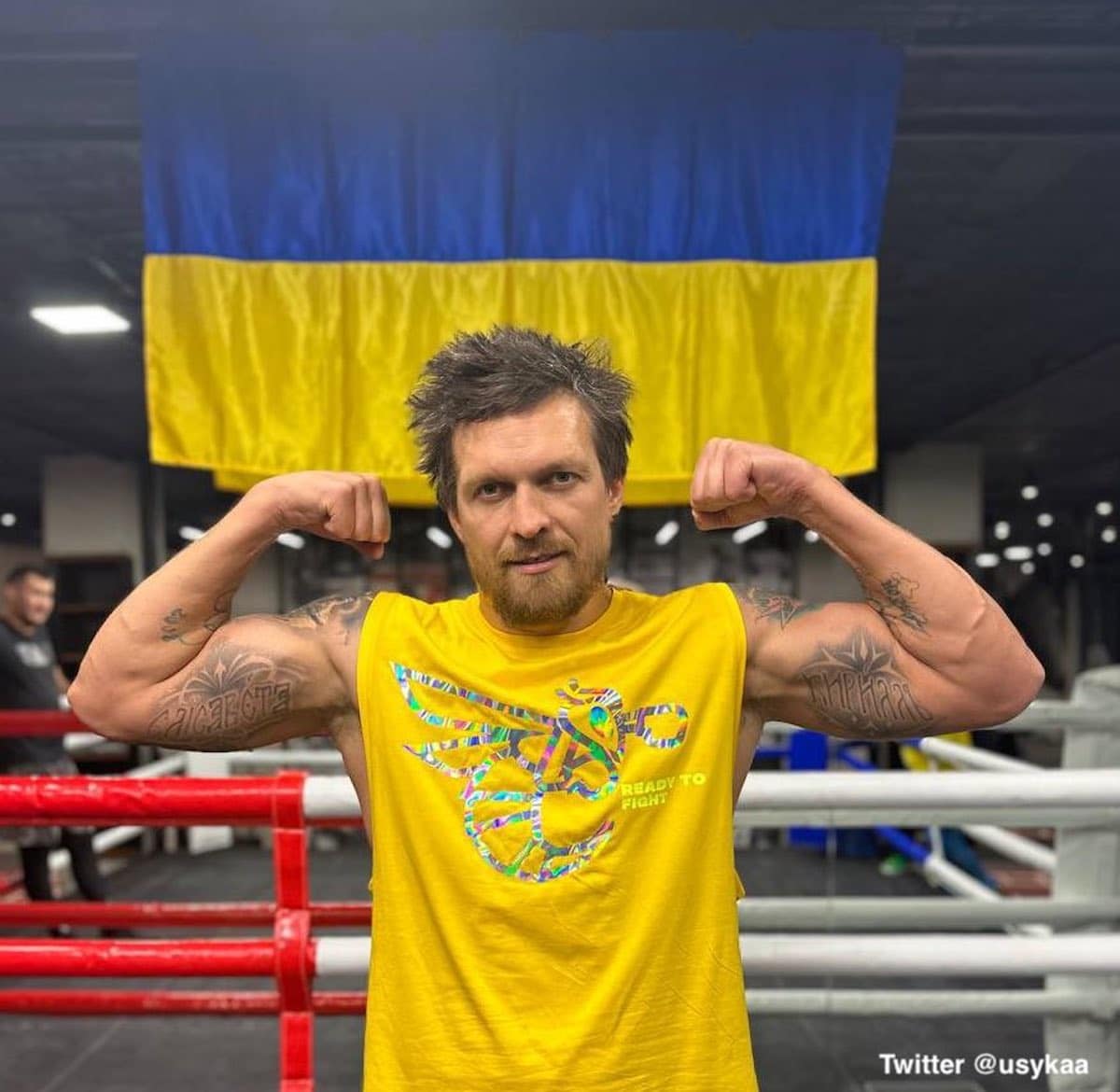With the undisputed heavyweight fight rumoured to be announced soon between Tyson Fury and Oleksandr Usyk, Gary Neville visited Usyk’s camp to discuss the battles he faces inside and outside the ring in Sky Bet’s next episode of The Overlap.
Oleksandr Usyk, speaking on The Overlap, in partnership with Sky Bet said: “I was always told that I couldn’t become a champion”

“If a person is bigger than me, it doesn’t mean that they’re stronger. If they have longer arms, it doesn’t mean that it will be an advantage. I’ve been boxing since I was 15 years old.
“I’ve heard many opinions from people that I know well, and from people who I’ve met just once. They kept telling me that I shouldn’t box, they told me I wouldn’t become an Olympic champion, or a world champion, and that I shouldn’t have switched to the heavyweight division.
“These were opinions from people who couldn’t do it themselves. Personally, I keep praying and move forward. I don’t worry about whether I will reach my destination, like a samurai, he doesn’t have an aim, but he has his path, and I have my path too. It started from birth, and it will take me wherever God decides. Only God knows how long I’m supposed to live, I don’t think about it. I’m trying to live in the best possible way, I try not to harm anyone and help others whenever possible.”
Usyk talks Fury: “I need this fight with Tyson Fury and that’s it. He needs it too. The fight is very important for both of us because all four belts haven’t been held by one person for 30 years in the heavyweight division.
“This will be like any other fight – it’s a big man who has never lost before against a man who has the WBC belt. Of course, it’s possible to get carried away but this is a normal fight for the right to win all the belts.”
Usyk: There will be changes in my strategy for Tyson Fury
“There will be changes in the strategy for the fight against Tyson, but I’ll continue to prepare in the same way. I’ll do lots of training, swimming, running, and boxing. There will be new workouts because Tyson is slightly different. He is big and tall, so his combinations and boxing style will be different. There won’t be any less work to do, if anything, there’ll be more of it.”
Oleksandr Usyk: I’m boxing for the whole of Ukraine
“I’m not boxing for the belt – I’m boxing for everyone defending our country right now and in memory of those warriors no longer with us – and for everyone who wants to be free and who stood up for their country against those who came to conquer us.”
Oleksandr Usyk: Going to church and playing football helped me develop growing up
“I was born in Simferopol and lived there until I was six. Then we moved to Chernihiv – where my mother was from. I went to school there and that’s when I started playing football. My relatives had horse stables, and I would help there. When I was in year two at school, I had a serious case of pneumonia – it was very bad, and the doctor even told my mum I might not survive. That illness lasted for a year – I’d spend two months at hospital and then two weeks at home, or a month in hospital and a week at home – I went back and forth.
“My grandma always took me to church – I found it interesting and liked watching the service, and I loved the smell of frankincense. I studied the church carefully – I was fine praying alone as my family weren’t particularly religious and didn’t go to church. I also started doing press-ups, squats and running – that’s how my sporting journey started, with nothing else to do in our village except football. I also improved my endurance by pouring cold water over me.”
Oleksandr Usyk Exclusive: My father is my hero
“When we returned to Crimea in 2002, I started playing for a professional football team. I played for them until my dad passed away – he was the one who always motived me and forced me to train and study. He meant so much to me, he taught me about the priorities in life – family, sport and education. He was a military man – my mum hated when he taught me how to fight with a knife! She would shout ‘he’ll grow up to be a criminal – what are you doing?’ and my dad would respond saying ‘if he knows how to do it, he will never use it on others, but when he needs to protect someone – that is when he will use it’.
“My father is my hero – I often think of him and miss him very much. He was already ill when I competed at the London Olympics in 2012 – I was preparing for the gold-medal match, and we didn’t speak for a few days. When I won and got back to my hotel room, he called me – we spoke for an hour, we’d never spent that long on the phone before. It was if he was saying farewell to me.
“I know he is very proud, but he never said it to me. He never told me that he loved me, but I know he told his friends he did. He grew up in the Soviet era, where a man is supposed to be tough and not show his emotions. I still love him and will always continue to love him. Every day, I tell my sons how much I love them and how cool they are – I just want them to know that as a father, I will provide them with everything they need.”
